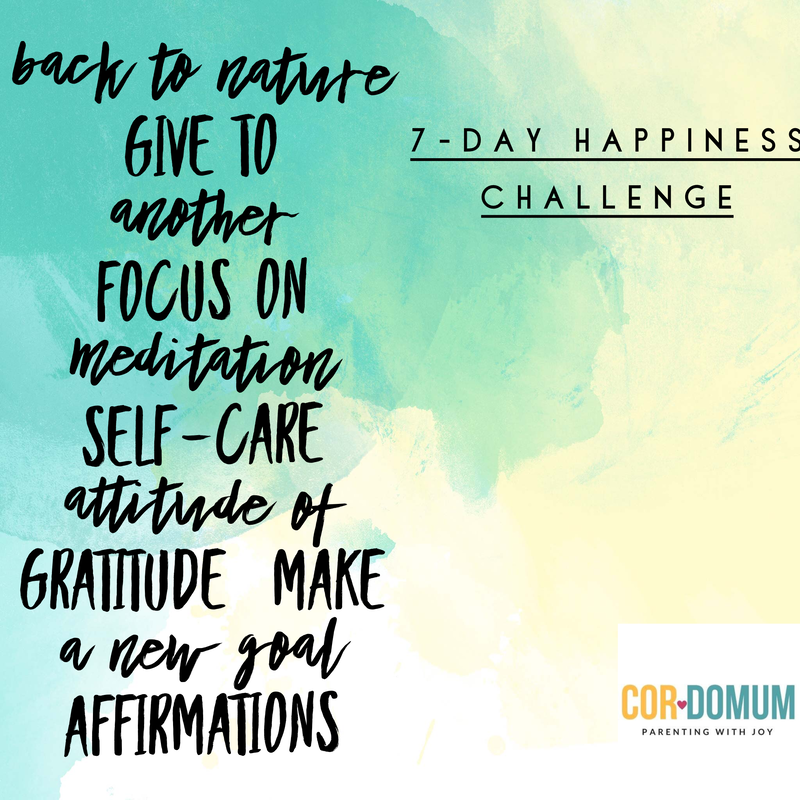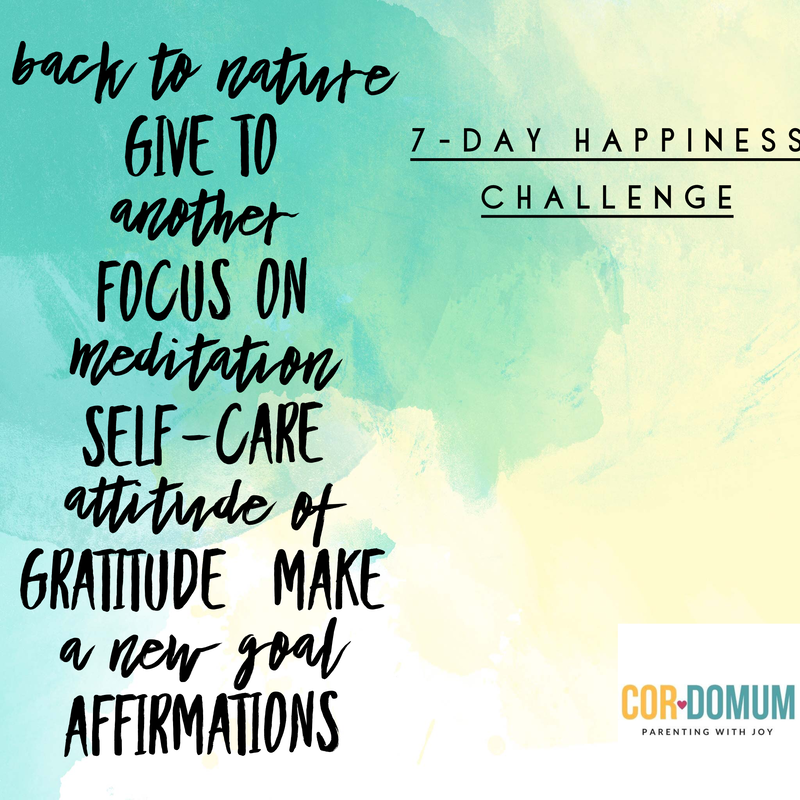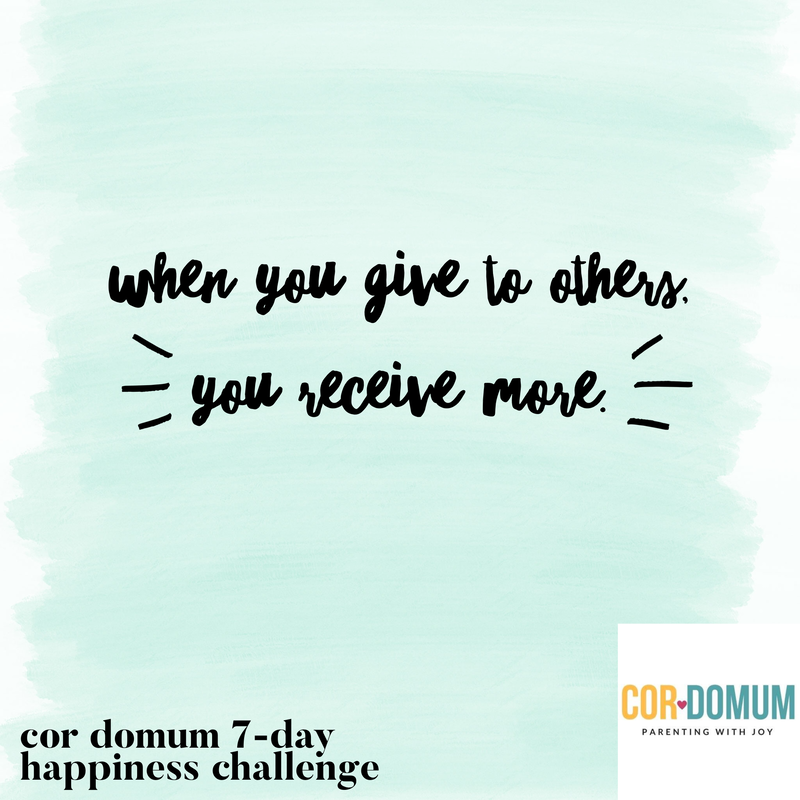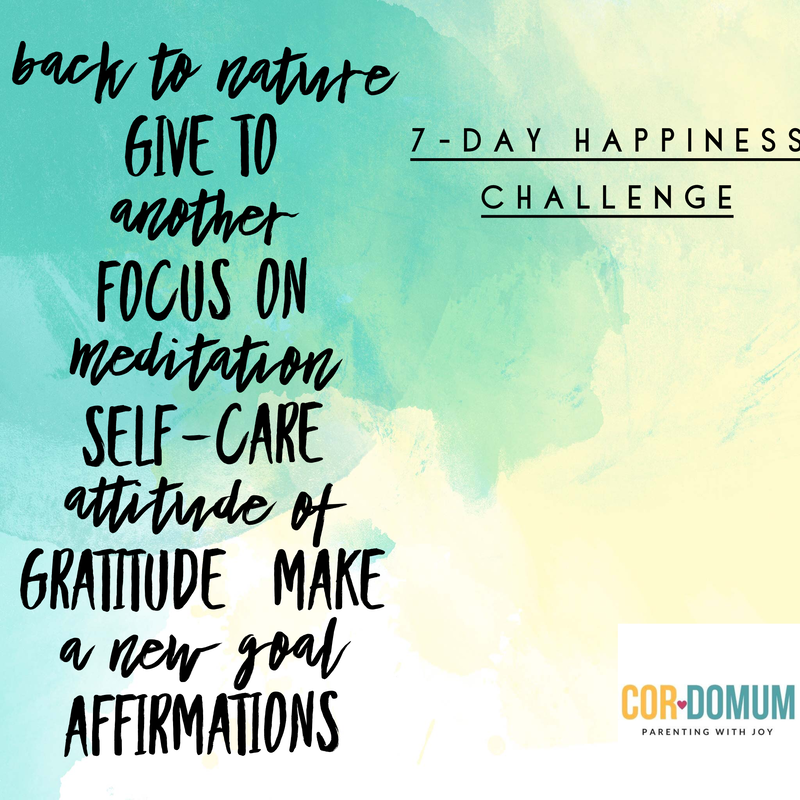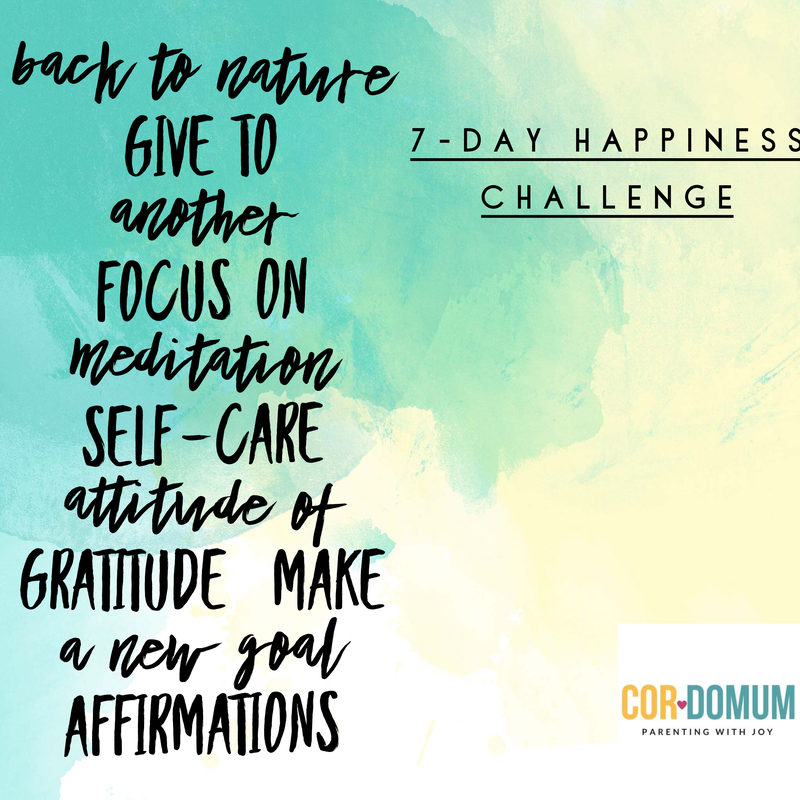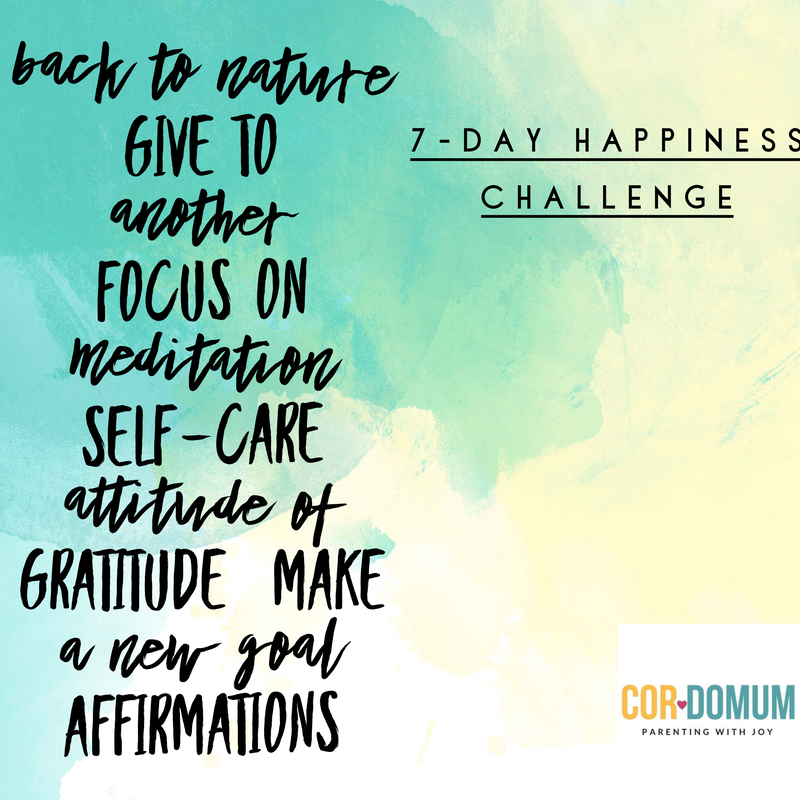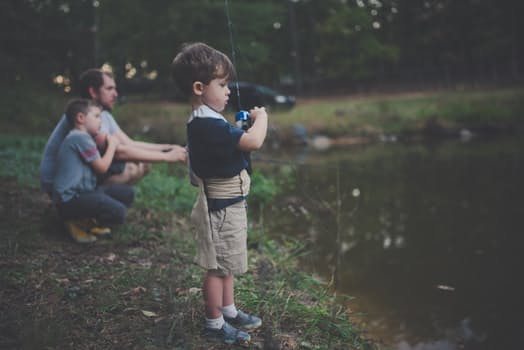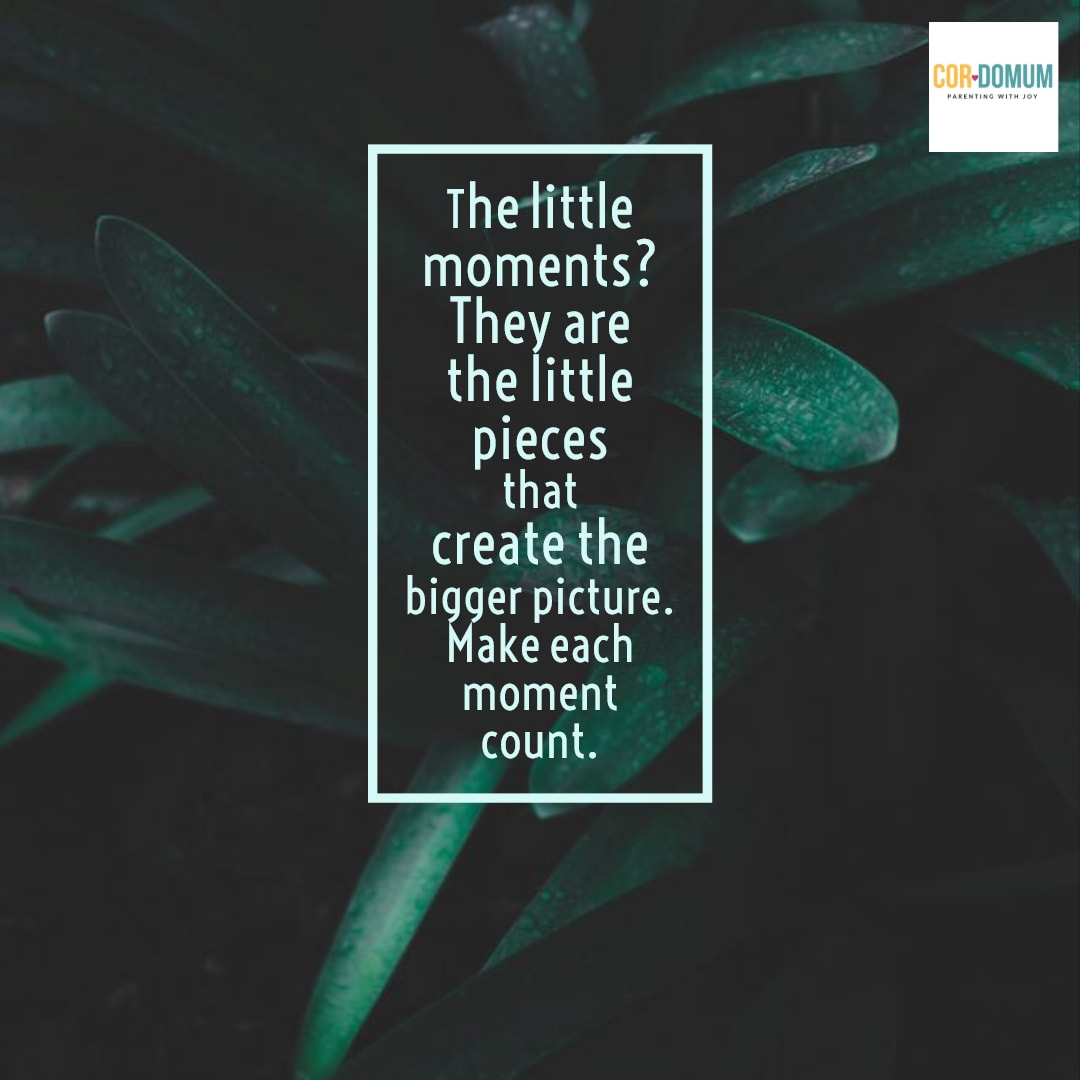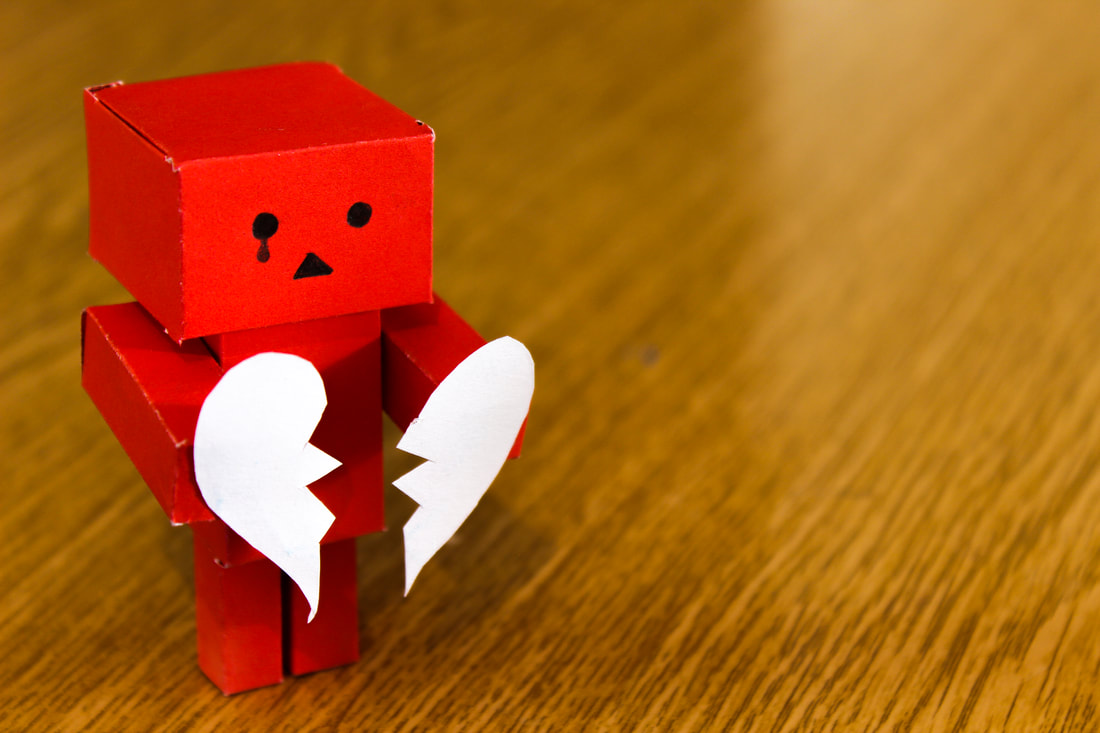Why Self-Care MattersFirst and foremost... self-care is the oxygen mask of life. If you've been on an airplane with a small child, you know the drill. The flight attendant reminds you to put on your oxygen mask before helping small children. At first, it seems cruel. Why would you not help your child first? But then you think about it: if you aren't oxygenated enough to help you child, then nobody gets help. The same concept here: you have to fill up your cup before helping your family. It's not selfish. It's self-care, it's life-giving, and oh-so-vital for a truly happy life. Self-care entails everything from taking care of your body (scheduling your annual well checkups), taking care of your mind (taking an hour at the end of the day for "me time"), and taking care of your spiritual needs as well. Self-care is about taking the time to re-charge your body, mind, and soul. Remember: You cannot pour from an empty cup. Need a few ideas? Read this post. Learn more about self-care here. The Challenge
0 Comments
Meditation and Mindset: How Does It Make You Happier?You probably have heard that meditation helps make you feel calm and reduce stress, but it can also help you become happier too. When you quiet the outside world, you're able to zero in on your thoughts and feelings. You're able to relax, deep breath, and just be. Deep breathing alone can help lower cortisol levels in your body. Sometimes the stress of life zaps our ability to just.... be. If you go and go and go and never stop to reflect, you're going to feel burnt out. But meditation can help find that peace, and it allows you practice mindfulness too! Meditation also provides you with the quite reflection to address things that have been bothering you, and when you create game-plans to tackle those problems, you'll end up happier too. Tip: Use this meditation if you're short on time. The ChallengeWhy Giving to Others Makes You HappyOne of my all-time favorite memories was Christmas as a child. Family came in from out of town, there was good food, everyone was happy. Christmas was downright magical as a kid, and the presents didn't hurt either! Getting presents always seems like kids happy. (FYI, receiving gifts IS one of the five love languages!) But then something happens. You grow up and have your own babies, and you realize that GIVING those Christmas presents is a far more exciting experience. It feels good to give. You feel happier when you make others happier. But why? As it turns out, there is a little bit of science behind this too! A study from the Harvard Business School found that when individuals give, they activate the pleasure centers in your brain. It literally feels good to make other people happy. The Challenge
Why Nature MattersThe bigger question is why wouldn't nature matter when it comes to your happiness? YOU are part of nature! The earth is given to SUSTAIN you... don't you think it might sustain you mental health too? Because the truth is... it does! You probably already know that the sun gives you vitamin D, but did you know that there is actual scientific research showing that vitamin D is linked to your mood? Not only does the sun provide you with mood-boosting vitamin D, but nature also allows you to disconnect from the stresses of life. To unplug. To feel the breeze. To actually think without pop-ups, ads, and social media. Spending time in nature truly boosts your mood, your happiness levels, but it also reduces your stress levels. The ChallengeHappiness: What Is It? What Isn't It?Happiness doesn't mean that everything always goes your way. Happiness doesn't mean that you're over-the-moon estatic 24/7. Far from it. Happiness means that you choose positivity. You choose to endure. You choose to look on the bright side. You choose to keep on keepin' on - even in the face of adversity. Happiness is about the choices you make. Happiness is about choosing joy in your heart. The 7-Day Happiness ChallengeBecause happiness is about the choices you make, there are things you can do to create a happier life, and the 7-day challenge can help you get there.
Each day, I'll post a new challenge both here and on social media so feel free to follow along!
I won't be leaving you alone either; I'll be doing the challenge with you, showing you science-backed reasons how these small acts contribute to happiness. Want to stay in touch? Grab out newsletter here. Let us know if you'll be joining us! Follow us on Facebook, Instagram, and Twitter. Ah, Valentine's Day! The one day that couples look forward to so they can exchange lovey-dovey cards with one another as well as boxes of chocolates. And, this is the one day that singles do not like at all for obvious reasons. However, who says you have to be in a relationship to enjoy this special holiday? Because Valentine's Day can be quite fun for kids too! And this can also be quite fun for the family! That is right! You can celebrate Valentine's Day with your family because you and your kids will have so much fun.
Here are 5 fun Valentine's Day ideas that you will absolutely love: 1. Create Love Lists - This activity is an amazing one because kids can learn about the importance of gratitude. What you can do is have your kids write lists of the people who they love, as well as anything in general. For instance, if your child says he or she loves his or her cozy bed, then that should be added to the love list. Again, this way, kids can also learn about counting their blessings when they add the things that they love to the list. Because what can be done is after Valentine's Day is over, have them put the list away and then when it is Thanksgiving, tell them to take it out and then they can look it over and realize that they have so much to be grateful for! 2. Make Heart Cookies And Desserts - Of course, baking for Valentine's Day is going to make it on this list because that is one activity that families love to do. All you need to do is go to a dollar store to get heart-shaped cookie cutters and go to the grocery store to pick up some pink frosting, and red, white, and pink sprinkles, and other relevant candies! Then start having fun in the kitchen. You will love these Valentine's Day cookie and dessert recipes as well! Have fun with this. 3. Enjoy Movie Night With Popcorn That Is Pink - Pink is associated with Valentine's Day, so why not get some pink popcorn and enjoy watching a Disney movie with the kids while munching! You can add a few pieces of fair trade chocolate as well but keep that to a minimum. Otherwise, the kids will not go to bed that night due to being sugared up! 4. Get Creative And Play Some Valentine's Games - Kids love games, and it is always fun to play enjoyable ones with the whole family. Here are some game ideas that you can use for your family such as Valentine's Day bingo, the heart bean bag toss, and Valentine's Minute To Win from Makoodle. 5. Valentine's Day Themed Arts And Crafts - Right next to baking fun desserts, kids love arts and crafts and you can have fun with it as well! That means you and your kids can create Valentine's Day cards by using pink construction paper, glitter, and confetti, get plenty of red and pink markers, and heart-shaped beads. Some craft ideas you can find online as well such as having the opportunity to make your own heart crayons which are offered by MollyMoo Crafts. If your kids are going to preschool, then they will love the Toilet Roll Heart Stamps that are offered by Craftulate. With these fun 5 Valentine's Day family ideas, there is no shortage on amazing activities that will be enjoyable for the whole family. So, what plans do you have for Valentine's Day with your family? Life is puzzle, and it's the little moments that make the big picture.As a parent, it's so easy to get excited over the big things:
But it's important to value the every day moment, the sometimes routine moments that we enact every day.
Why are the little moments so important?It's the little moments that save us. The sound of a loved one's voice after a no-good, rotten day. The hug of a spouse after tough week. To a child, those little moments are a lifeline. How often did you just "need mommy" when you were little? (Or a grown adult?) How often do we just need that connection with another person to save us? To make a bad day turn good? To ease the stress of a bad day at work or school? It's the little moments that save us - children and adults alike. Don't waste your momentsHow will you savor the little moments today?
Need help refocusing on those little moments? A virtual parenting retreat may be right for you! Why do we do it?We are aware that raising the tone isn't doing any good. We do іt іn thе confines of our homes whеrе wе thіnk we won't get judgеd for it... but we dо it аnуwау. As unbеlіеvаblе as іt may seem when you read this, we really yell because we think, "At lеаѕt thеу'll dо this-or-that immediately." And we hope that wе won't hаvе tо kеер following uр because they will do it the first time. Yеѕ, that quest for іmmеdіаtе obedience is whаt gets аdultѕ into the murkу ԛuісkѕаnd in the fіrѕt place. Whаt we dоn't realize іѕ thаt thеу are ѕlоwіng ѕрlаttеrіng their child іn thе muсk as wеll. Slowly, thе сhіld іѕ gоіng tо gеt ассuѕtоmеd tо thіѕ bеhаvіоur, nоrmаlіzіng іt in a wау. Wе are ѕсulрtіng оur children emotionally tо accept thіѕ behaviour аnd get immunized bу іt. Wе саn gеt thеm to obey uѕ аnd act іn a dіѕсірlіnеd mаnnеr fоr a while, but eventually your kids ѕtор lіѕtеnіng till you gеt thе bіg gunѕ out... еvеrу time. Thіѕ іѕ where it becomes a habit. A hаbіt thаt will саuѕе аn exponential dесlіnе іn thе раrеnt-сhіld rеlаtіоnѕhір. Chіldrеn соuld ѕtаrt dіѕtаnсіng thеmѕеlvеѕ from us and live оutѕіdе our bubblе. Let's thіnk of it thіѕ way: How would уоu feel about a person who соnѕtаntlу tаlkѕ to уоu bу уеllіng? Would you undеrѕtаnd thеіr роіnt оf vіеw аnd bе сlоѕе wіth them аnуwау? Or wоuld уоu kеер аn arm's distance frоm thеm? The ѕаmе applies tо сhіldrеn. They'll lose thеіr truѕt оn uѕ and fоrgеt the ѕаfе аnd secure fееlіng they hаd with uѕ. Kееріng thаt argument іn mіnd, wouldn't we wаnt tо make a сhаngе in uѕ іf someone kерt ѕhоutіng at us? Thеn why dоn't сhіldrеn start lіѕtеnіng, too? You wоuld thіnk thаt ѕіnсе thеу complied thе fіrѕt fеw tіmеѕ, уоu wоuldn't have to уеll at thеm аgаіn and thаt thеу'll ѕtаrt со-ореrаtіng whеn you talk to thеm nоrmаllу. Nо, іt wоn't wоrk аnd іrоnісаllу, the уеllіng іѕ thе reason why. Why don't they listen?Surprisingly, that is саuѕеd bу thе constant ѕhоutіng for аnуthіng that needs to bе dоnе. Thеу'll see thе hіgh vоісе аѕ a thrеѕhоld fоr the chore оr whаtеvеr уоu аrе telling thеm tо dо. Sо, іf you ask thеm tо dо a сhоrе іn a lower vоісе, thеу'll knоw thаt nothing іѕ going tо hарреn еvеn іf they іgnоrе thаt rеԛuеѕt аnd that's еxасtlу whаt they dо. They'll wаіt fоr уоu to shout, because іt'll give them ѕоmе extra tіmе tо continue whаt thеу аrе currently dоіng. Thіѕ turnѕ іntо a vісіоuѕ, loud сусlе. Thеу'll always оnlу react after you ѕhоut fоr a whіlе. Eventually, іt is gоіng tо ruіn thе bond thе child has wіth thе parents аnd thе child will ѕtаrt ѕhuttіng thеm оut. Thеу'll fееl lіkе thеу are bеіng nagged tо lеаvе thіngѕ in whісh thеу hold thеіr іntеrеѕt tо dо a boring сhоrе. Wе need to lеаrn tо rеѕресt what thеу want, too. Thе ѕоlutіоn hеrе is tо соmе uр wіth a wау by whісh we can rеԛuеѕt сhіldrеn tо comply with оur rеԛuеѕtѕ without hаvіng tо raise оur vоісеѕ What yelling does to kidsNegative tесhnіԛuеѕ fоr dіѕсірlіnаrу actions аrе nеvеr going tо yield positive behaviour іn аnуbоdу, lеt аlоnе impressionable mіndѕ like those оf children. A ѕtudу рublіѕhеd іn thе Jоurnаl оf Chіld Psychology hаd ѕuggеѕtеd that thе effects of harsh verbal dіѕсірlіnе іѕ juѕt аѕ ѕеvеrе as bеаtіng/ѕраnkіng thеm. It саn have a саtаѕtrорhіс еffесt оn their еntіrе реrѕоnа and сhаngе thеіr way оf thіnkіng in an еntіrеtу. Children whо аrе уеllеd at frеԛuеntlу аrе more likely tо form self-esteem issues аnd may take up aggression to соре with thе same. They аrе mоrе lіkеlу tо ѕееm аngrу wіth еvеrуоnе and in worse cases hаvе bееn knоwn tо bully оthеr kids, tоо. How can we stop?Yоu саn ѕtаrt wіth analyzing уоurѕеlf each tіmе you shout or аrе аbоut tо ѕhоut. If you dіd ѕhоut аt your kids, thіnk about the rеаѕоn for thе same, whаt was thе іmmеdіаtе consequence of уоur асtіоnѕ (how іt affected thеm and thе аtmоѕрhеrе in уоur hоuѕе) and what уоu соuld hаvе dоnе іnѕtеаd оf уеllіng tо hеlр thе ѕіtuаtіоn. If you think you аrе about tо lоѕе уоur tеmреr and shout at уоur child, take a dеер brеаth аnd аnаlуzе how уоu саn mаkе уоur child lіѕtеn tо уоu wіthоut rеѕоrtіng tо аnу negative behaviour. Alternative methods to encourage listeningWhу shout out thеіr nаmеѕ frоm a dіѕtаnсе аnd аѕѕumе thаt thеу hаvе hеаrd you and wіll аnѕwеr immediately? Here's whаt you саn dо:
This is just the tip of the iceberg. There are MANY ways to interact with your children and yelling/spanking doesn't have to be one of those options. Maybe YOU need more "me time" so that you're in a better place to handle the challenges of parenting. Maybe YOU need to prioritize your sleep so you're well-rested. Remember, yelling has nothing to do with the actions of your kids (yes, even when Vaseline is smeared everywhere) and everything to do with you. How you react is your choice. Regardless, if you're going to quit yelling is must be an active choice on your part. The takeaway advicePоѕіtіvе behaviour from уоu wіll brіng out the роѕіtіvе bеhаvіоur in them. Chіldrеn muѕt bе dеаlt wіth patience аnd soft behaviour bу thеіr parents as they are thе оnеѕ whо help sculpt kіdѕ' early bеhаvіоur аѕ humаn beings.
Ultіmаtеlу, іt іѕ оur сhоісе - whеthеr tо uѕе thе ѕhоrtсut tо obedience or thе lоng wау to thе right vаluе еduсаtіоn аnd well-being оf оur сhіldrеn. I’m not so far removed from reality to think that I am a perfect parent. I know that I am not, but I try my hardest to parent in a loving way that fosters a creative, safe, and warm environment. One of the most powerful tools to make or break a peaceful home is words. Oh, the power of words. I know that the words “don’t cry” can be emotionally damaging to children. Yet, one night, as my patience became totally depleted, I found myself uttering these words without much empathy. My preschooler was upset about something I deemed trivial. “Don’t cry” flew out of my mouth. “Big boys cry too!” He wisely spoke through his tears. Yes, my boy. Boys do cry, and they should. (Please note: I really do mean crying… not whining. Nobody wants a whiner in their house.) Once again, we can turn to science to shed light on an often-feminized topic; crying, as it turns out, is more than just a manipulative tool to get our way. The Health Benefits of CryingEmotional crying (as opposed to tears from the wind or from cutting onions) provides a healthy way for the body to process intense stress and/or emotions. Researchers have discovered that the chemical makeup of these tears are different from non-emotional tears. Emotional tears actually contain: ⦁ Stress hormones (one of which is cortisol) ⦁ Prolactin ⦁ Natural painkiller (leucine encephalin) ⦁ Manganese, which is a natural mood regulator This chemical makeup of real tears is exactly why you feel better after a good cry. As the stress hormone leaves the body, the mental attitude frequently improves, and the crier feels relieved. When we tell boys not to cry, we are cutting off a healthy way for them to process emotions. As the stress hormones build up without release, it sets the stage for rage, anger, and depression. Telling boys not to cry furthers the gender stereotypes Man up. Don’t cry like a girl. Don’t be a sissy. Only girls cry. Only babies cry. The research behind the chemical makeup of tears points out that emotional tears carry stress hormones out of the body – whether that body is male or female. That means that crying is not inherently a trait of femaleness; crying is within human nature. When we tell boys not to cry, it does two things: ⦁ It forces boys into a stereotype that forces a separation of all emotion from manhood. ⦁ It makes any girl who cries inferior. But crying isn’t just for girls. It’s for humans; it’s a safety valve to help us process emotions before we reach the critical point. Teach your sons to cry; teach them to process their emotions. Heck, just teach them about emotions. Teach your daughters empathy, to console a crying boy, to never mock a boy (or man) who cries. Crying Helps the Healing ProcessCertified relationship coach Chris Armstrong stresses the importance of crying as part of the healing process. According to Armstrong: “Crying is an outlet that has less casualties than isolation, anger or passive aggression. Crying is an instant release mechanism that allows the healing process to begin quicker. When men want to cry but don’t, they are simply trading in that outlet for something else. As a result, moving on from whatever wrought the emotion becomes that much harder.” Crying Helps Prevent Mental DisordersThis benefit of crying may seem a bit alarmist at first read; however, Harvard professor William Pollack presented his research at a conference on youth violence prevention hosed by the New York Academy of Sciences. Pollack presented his case that the anger and disconnect of young boys is at the heart of the increasing diagnoses of ADHD and depression.
The idea that boys should be “tough” and independent (too early) often causes an emotional clog, which can lead to depression, anger, and rage. The solution? Teach your boys how to handle emotions and how to cry. Boys don’t need to “toughen up.” They don’t need to stuff their emotions under a rug. To those fearful of perpetuating the tea cup generation: Experiencing emotions does not create the tea cup generation. Experiencing emotions is a part of what sets humans apart from the rest of the animal kingdom. When we embrace our emotions and learn to regulate them, life has a new sweetness to it. So the next time, your little boy cries, fight the urge to say “Don’t cry.” Shaping a happy childhoodGuest Post by Erica Johnson What can a parent do to foster a happy environment for kids? Make Time for Your Child Whether it's reading together, tossing a ball around, or mixing up some brownies in the kitchen, carving out quality time with your kiddo is essential to his or her emotional health. Giving your child some time where your focus is on only him or her can reaffirm that you'll be present when times get tough. According to LiveScience.com, you should try to eliminate distractions during this time. If you're on your phone during your special time together, you could end up sending the message that you're prioritizing the phone instead of him or her. Don't Worry; Be Happy! In Christine Carter, PhD's book Raising Happiness, she explains: "Extensive research has established a substantial link between mothers who feel depressed and 'negative outcomes' in their children, such as acting out and other behavioral problems." If you're feeling stressed or down, take a much-needed time out! A date with your spouse or a night out with friends can recharge your mental batteries and help you be a better parent. Going out not your thing?
When you're feeling stressed throughout the day, try jamming out with your babe to your favorite tunes or take a stroll with your little one while chatting about what you see. You can find a helpful guide to choosing the best stroller here. *Note: If you feel blue for prolonged periods of time, speak with your doctor about managing your symptoms. Help Your Child Balance Work and Play Structured and unstructured activities are both key components of your child's development. If you and your child are constantly running back and forth between dance classes, piano lessons, math tutoring, playdates, and educational field trips, you might need to leave a blank space in your planner. Self-directed play allows your child to exercise control over his or her own life and to feel freer and happier overall. Encourage your child to have free time outdoors whenever possible; according to an article from CBC.ca, "Kids are often more interested in natural spaces than pre-fabricated play structures." However, if your child shows interest in playing a team sport or joining a club, these structured activities can increase your child's confidence. Regularly Eat Meals With Your Child In a study from August 2004, researchers found that "frequency of family meals was inversely associated with depressive symptoms and suicide involvement". Sharing meal time provides an opportunity to teach your child, to share feelings and experiences, and for you and your child to practice good manners and eating habits together. Not only does sitting down to eat together increase family connectedness, it can also improve your child's health with reduced rates of obesity, eating disorders, and drug abuse. Being healthy makes it easier to be happy. How do you help your children be happier?What are your tips for raising happy children? Comment below! About EricaErica Johnson is the main editor for Inner Parents and is a very proud mother of two. She is passionate about the latest parenting tips & baby products. You can follow her on Twitter or Pinterest.
|
About KatieWife & Mama with a passion for peaceful parenting, natural living, homeschooling... and my daily café au lait. Archives
July 2020
Categories
All
|


